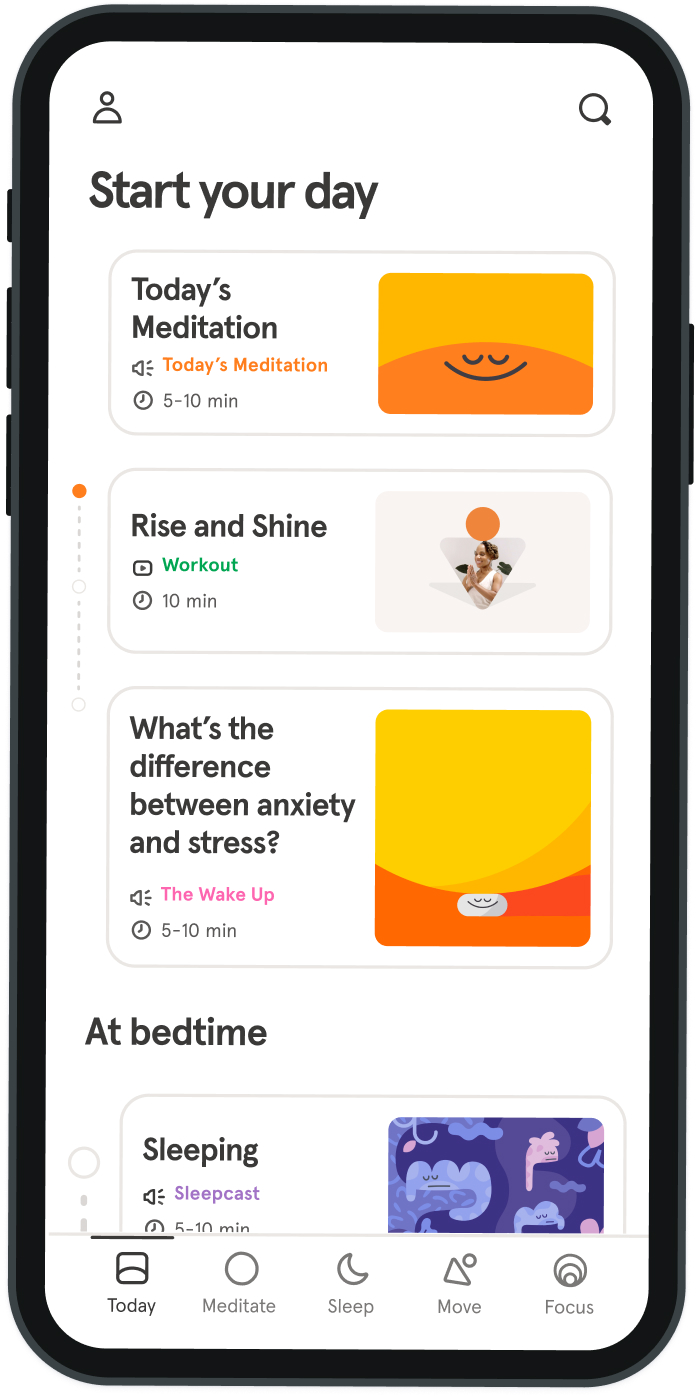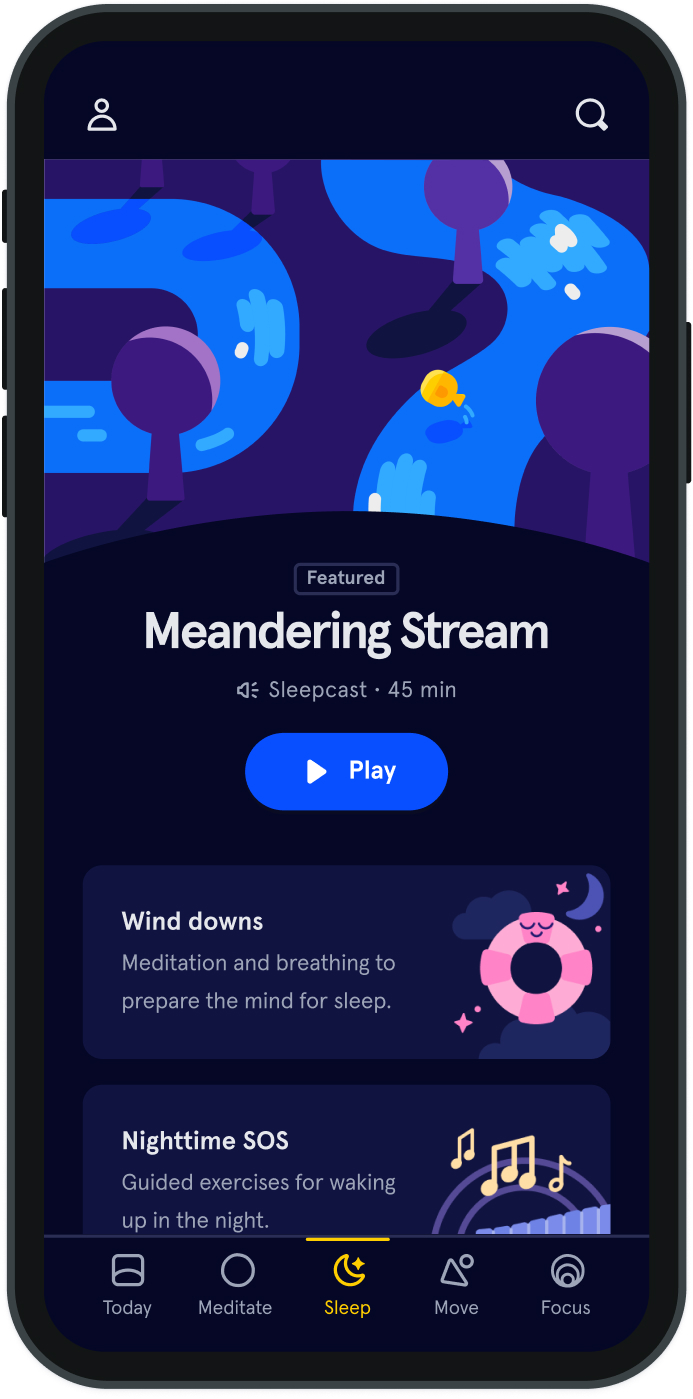How do our bodies interpret time?
It’s bedtime in the Blumberg-Adler house. My four-year-old sits on the playroom floor in Minnie Mouse pajamas tucking tiny ponies into a castle she’s built out of Magna-Tiles. Our conversation goes something like this:
“Come on sweetie, it’s time for bed.” “I’m not done.” “OK, five more minutes.” “No, 15.” “OK 15.” Five minutes later, I tell her “time’s up,” and we march to the bathroom to brush her teeth. She’s clueless. Ten minutes, fifteen, twenty. It’s all the same to her. She’s too young; she can’t accurately gauge time. I help her floss, and wonder, how long will this ruse last? [Editor’s Note: hopefully for a long time. Especially if you use the Kids’ meditations.] Then, I start mulling over my own perception of time. The hour-long massage I got a few months ago flew by. (I swear it only lasted 30 minutes.) But the hour-long conference call the week before felt like it dragged on three times as long. Why? How do our brains interpret time? Why do so many of my days feel like they’re passing so fast? Why do I constantly feel like there’s not enough time? And most importantly, is there anything I can do about it? “The speed of time is based on two things,” says Aoife McLoughlin, a psychology lecturer at James Cook University's Singapore campus, “how important is time in a given moment, and, do I know how much time has passed?” McLoughlin uses a painful dental procedure as an example. Time is important because you want it to be over fast, but you’re also uncertain about it. The procedure is new to you, and with the dentist’s hands in your mouth, you can’t ask how much longer it will last. “You can’t tell if you’ve been there five minutes or an hour,” she says. “This makes time seem to go very slow.”
And yet, when splayed out on a lounge chair on vacation in Mexico, perception may skew the other direction. You might check your watch, but it also may not matter because you have nowhere to be and nothing to attend to apart from enjoying food and drinks. Eventually, the sun starts to set, and it feels as though the day has flown by. Research suggests we develop a primitive sense of time when we’re as young as a month old. One study from the 1970s showed month-old babies could recognize “a given temporal interval between events,” by placing them in a dark room and turning a light on every 20 seconds. When researchers repeated the experiment without the light, they found babies’ pupils still constricted every 20 seconds. They continued to anticipate the light. A more nuanced understanding of time doesn’t develop until much later, around age seven or eight—when kids’ brains start to perceive time like adults do. Time perception is handled by a number of different parts in the brain. To perceive time, it’s been suggested our brain relies on internal clocks that tick at different rates and monitor how we move our bodies, experience the sights and sounds around us, and reflect our memories. Each clock has a pacemaker that creates pulses, and our brain calculates and stores how many pulses occur during a given amount of time. “When the number of pulses reaches the correct amount, we know a certain amount of time has passed,” says McLoughlin. “However, it appears that these pacemakers are sensitive to arousal of various types.” Certain types of stimuli can alter the speed. Studies have shown that body temperature, heart rate, level of focus, age, alcohol, and emotions can all impact how accurately we judge time. McLoughlin says “modern life” and technology can also accelerate our pacemaker, which isn’t necessarily a positive or negative effect.
Some researchers have shown a faster internal clock can help us process information more quickly and yield faster reaction times. But a faster pacemaker can also make us think more time has passed than actually has. In her research, McLoughlin has found that people tied to laptops and smartphones often overestimate the amount of time that passes. “If I think more time is passing than is actually the case, this can make me feel that impending deadlines are approaching at a faster rate,” she says. When it happens, we may feel pressed for time. And feelings of “time pressure” have been linked to heart disease and other stress-related illnesses. So, what’s a modern, laptop-loving person to do? Can we slow time? Kind of. McLoughlin suggests we recalibrate our internal clock periodically. One great way to do this is by practicing mindfulness. Calming the mind and allowing the pacemaker to readjust from its aroused state can offer a healthy reset. “Being present is important,” she says. Focusing on the breath grounds us. Another trick? Pay attention to the clock. Notice how long a minute really is, and how much we can achieve in an hour. Lately, when I feel like the day is slipping away—or maybe I’m waiting for a four-year-old to finish stalling before bedtime—I watch the clock for a few minutes. And I breathe.



Be kind to your mind
- Access the full library of 500+ meditations on everything from stress, to resilience, to compassion
- Put your mind to bed with sleep sounds, music, and wind-down exercises
- Make mindfulness a part of your daily routine with tension-releasing workouts, relaxing yoga, Focus music playlists, and more
Meditation and mindfulness for any mind, any mood, any goal

Stay in the loop
Be the first to get updates on our latest content, special offers, and new features.
By signing up, you’re agreeing to receive marketing emails from Headspace. You can unsubscribe at any time. For more details, check out our Privacy Policy.
- © 2025 Headspace Inc.
- Terms & conditions
- Privacy policy
- Consumer Health Data
- Your privacy choices
- CA Privacy Notice
